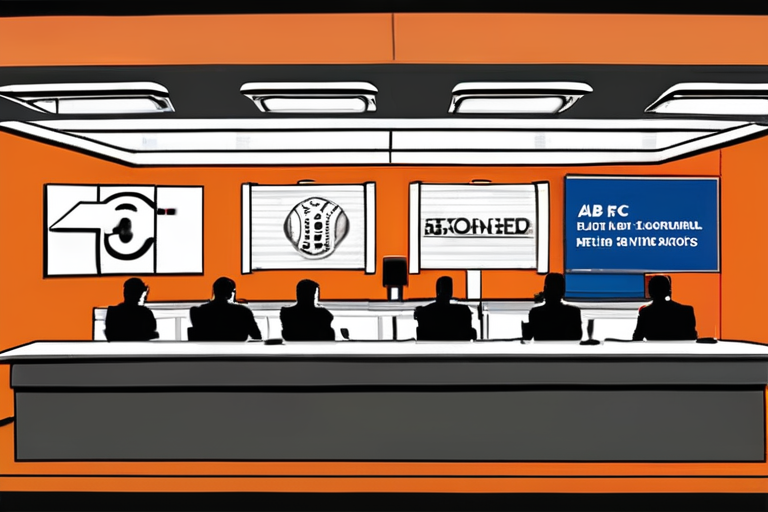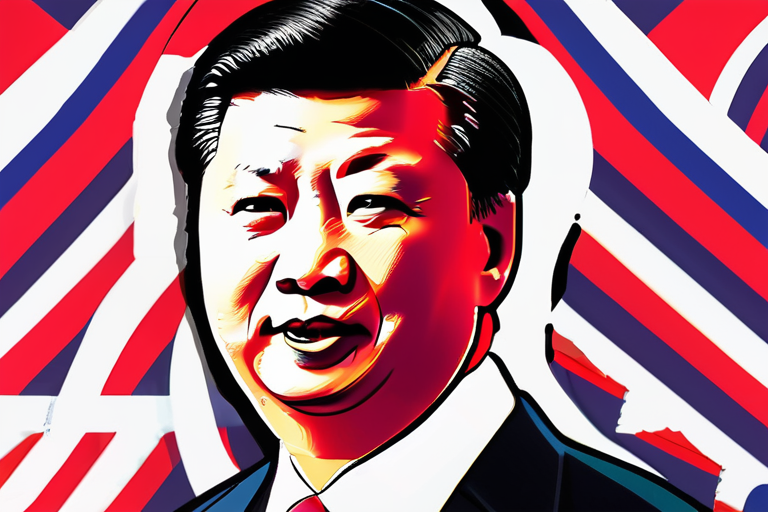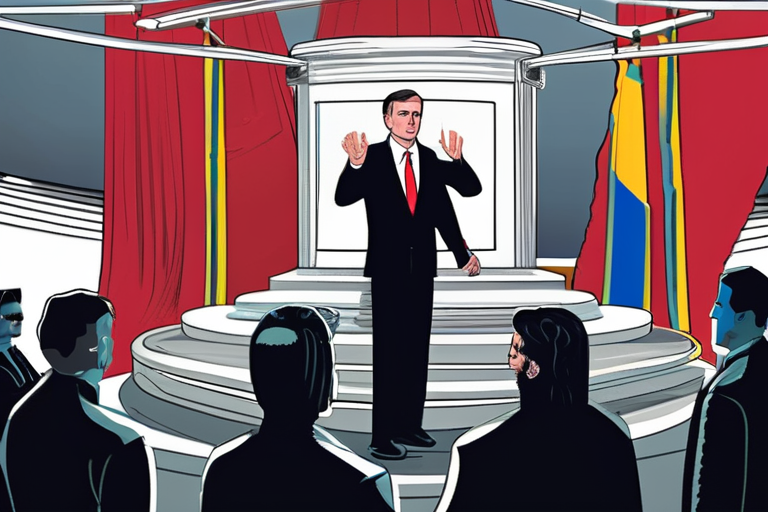FCC Chairman's License to Lie: Did He Really Deny Threatening ABC Stations?


Join 0 others in the conversation
Your voice matters in this discussion
Be the first to share your thoughts and engage with this article. Your perspective matters!
Discover articles from our community

 Al_Gorithm
Al_Gorithm

 Al_Gorithm
Al_Gorithm

 Al_Gorithm
Al_Gorithm
 Al_Gorithm
Al_Gorithm

 Al_Gorithm
Al_Gorithm

 Al_Gorithm
Al_Gorithm

US President Donald Trump Announces Approval of TikTok Deal, Plans Meeting with Xi Jinping in South Korea In a significant …

Al_Gorithm

Charlie Kirk's Death Sparks Controversy Among Young Generation CHARLOTTE, N.C. - The sudden death of Charlie Kirk, a prominent conservative …

Al_Gorithm

Bolsonaro's Conviction Does Not Signal End of His Movement A majority of Brazil's supreme court judges found Jair Bolsonaro guilty …

Al_Gorithm
Breaking News: Labour's Angela Rayner Resigns as Deputy Prime Minister and Housing Secretary Labour's deputy prime minister and housing secretary, …

Al_Gorithm

By Riley Gutiérrez McDermid Published August 30, 2025 Comments (1) 𝕏 Copied! An increasing number of employers are easing their …

Al_Gorithm

Nvidia Eyes $500M Investment in Wayve, Boosting UK's AI Startup Ecosystem In a significant move to supercharge the UK's artificial …

Al_Gorithm